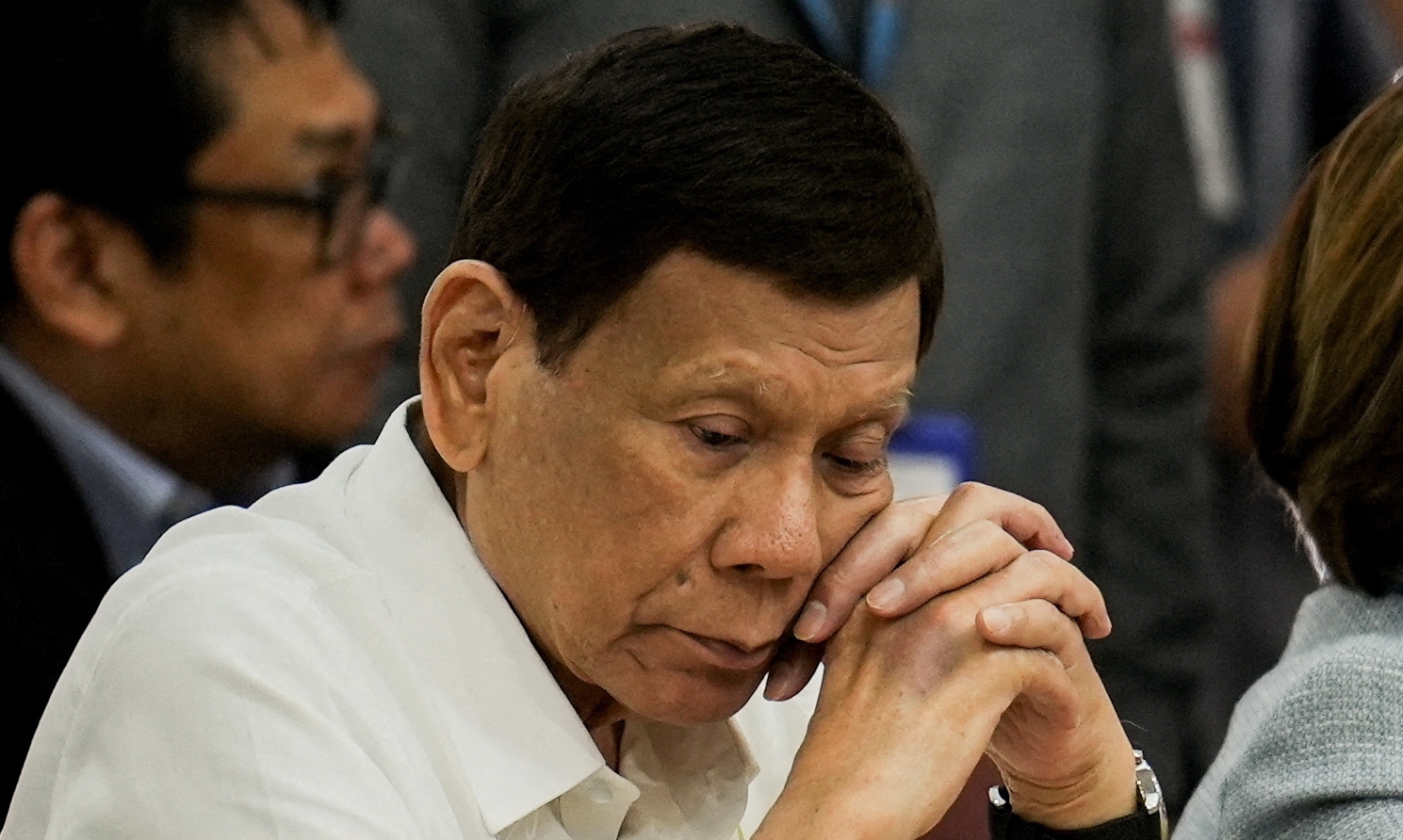Nicholas Kaufman, a member of former Philippine President Rodrigo Duterte's legal team, notified the International Criminal Court (ICC) on 11/9 that his client is suffering from severe cognitive decline, affecting his memory, mobility, and daily life.
In a 13-page document submitted to Pre-Trial Chamber I of the ICC, Kaufman stated that Duterte is not fit to stand trial and requested an indefinite postponement of all legal proceedings.
The lawyer said the former president cannot remember events, locations, or even close family members and his defense team, making him "unable to fully understand the nature and consequences of the proceedings".
 |
Former Philippine President Rodrigo Duterte in Quezon on 13/11/2024. Photo: Reuters |
Former Philippine President Rodrigo Duterte in Quezon on 13/11/2024. Photo: Reuters
Kaufman emphasized that this condition is unlikely to improve and that Duterte cannot contribute to his own defense. "He cannot understand why he is being detained or make decisions based on a fundamental understanding of the legal process," Kaufman wrote, stressing that the former president's health does not meet the minimum standard for appearing in court.
Duterte, 80, faces charges of crimes against humanity due to his controversial anti-drug campaign while in office. This campaign drew strong criticism from the international community and human rights organizations for its high death toll.
The ICC previously postponed a hearing to confirm the charges against Duterte, scheduled for late September, to consider the defense team's request. It is unclear when the court will rule on the trial, as many details in the medical records have been redacted for sensitive reasons.
Duterte has always denied the legitimacy of the potential arrest, calling it a "kidnapping." Declaring a defendant unfit to stand trial is rare in international courts, even for the elderly.
In 2023, the United Nations war crimes tribunal declared Rwandan genocide suspect Felicien Kabuga to be suffering from dementia and unfit to stand trial. However, Kabuga remained in UN custody in the Netherlands because no country agreed to take him in.
Thanh Danh (Reuters, Inquirer)












